Seriously ill from Logan back in court over cannabis for medicine
Two Brisbane residents in court charged with making their own cannabis medicines say they are using it as pain relief, one to help with a life-limiting auto-immune disease that progressed so rapidly she was force to have her foot amputated.
Logan
Don't miss out on the headlines from Logan. Followed categories will be added to My News.
TWO southside residents are back in court this month to defend charges for making their own cannabis medicines.
The cases follow this month’s Supreme Court appeal by Ipswich man Alex Dimitropoulos, who argued against his conviction for growing cannabis for medical purposes.
The judge adjourned the matter and reserved his decision.
Cornubia grandmother Deb Lynch, president of the Medicinal Cannabis Users Association of Australia, will return to Beenleigh Magistrates Court tomorrow.
CALL FOR CANNABIS LAWS TO CHANGE
CLINIC SELLS CORPORATE CANNABIS
Ms Lynch was arrested and charged in 2017 when police came to her home and discovered the cannabis she used to treat her life-limiting auto-immune disease.
A year later, her disease, chronic ischaemia, had progressed so rapidly she was forced to have her foot amputated.
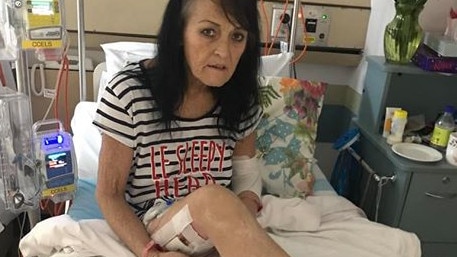
On Wednesday, she is expected to plead not guilty to the offences, which also include possession and production of a dangerous drug.
Ms Lynch said the state laws needed to change and said she aimed to get her story into case law so other medicinal cannabis users would not have to suffer.
“Too many Queensland patients are being put in this cruel and unnecessary position and are being discriminated against by the high cost of legal products,” she said.
“Cannabis is an acceptable medical treatment recognised and supported by government legislation in places such as Canberra.”
Mt Cotton’s Andrew Ludwig is another Queensland patient facing court this month for making his own cannabis medicines.
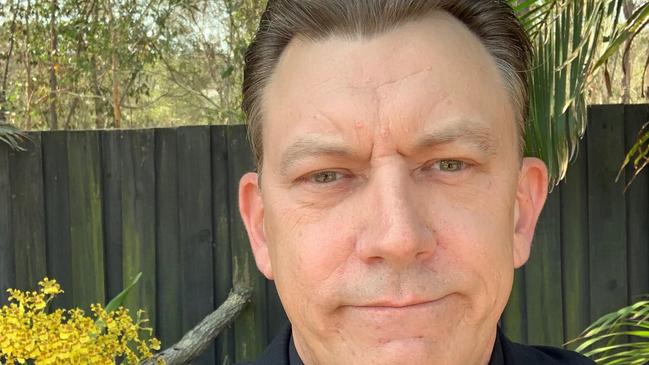
The 46-year-old dad has been off work for two years after falling sick nearly five years ago.
“There was a period where I had nausea and vomiting daily for seven months and I had seen many specialists for a long time but no one had answers,” he said.
“This plant is the only reason I’m still here and alive.”
Mr Ludwig was charged with offences related to producing a dangerous drug, possession and having equipment to grow cannabis.
He will be pleading not guilty when he faces court this month.
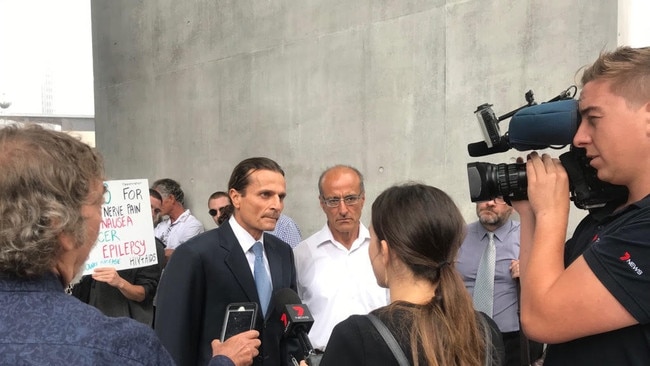
The three Queensland cases follow this week’s decisions in Western Australia to allow GPs to prescribe medicinal cannabis via the Therapeutic Goods Administration and to no longer require specialist prescriptions.
MCUA estimated that nearly one million patients were now seeking access to cannabis medicine across the country with federal government figures showing around 20,000 patients had approvals for access to legal products.
SUBSCRIPTION BARGAIN: FULL ONLINE ACCESS: $5/MONTH (conditions apply)
But Ms Lynch said cost was forcing many patients, such as Mr Dimitropoulos, to turn to the “black” market or grow their own and many had decided against getting the drug via legal clinics such as the Cannabis Access Clinic at Belmont.
Cannabis Access Clinics general manager Andrew Glover said patients could be prescribed medicinal cannabis by doctors at his clinics and then get the drug dispensed at a local pharmacy.
“Our view is that the issue is more of a commercial one than a legal one,” he said.
“The regulations allow suitable patients to get medicine in as little as a few days.
“Thousands are accessing it every month. The issue is cost, which is coming down and will continue to do so as volumes increase.”
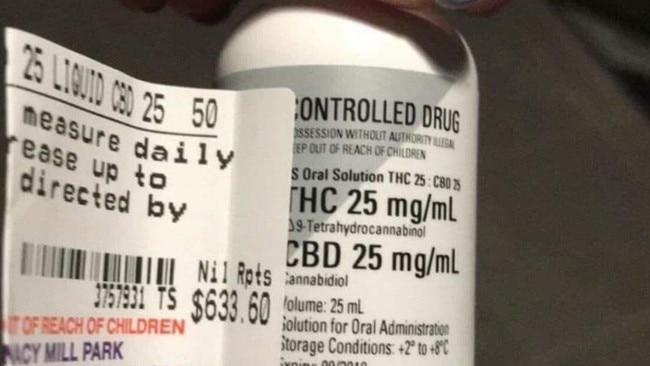
On average, patients at the clinics are charged fees of around $200 for an application to the Therapeutic Goods Administration via an online portal – a process for which there is no fee.
Costs varied from under $100 to over $1000 for the initial consultation and application fees.
Due to the increasing number of complaints about the clinics, MCUA has started its own patient satisfaction survey to gauge overall experiences with the government’s system of distributing the drug.
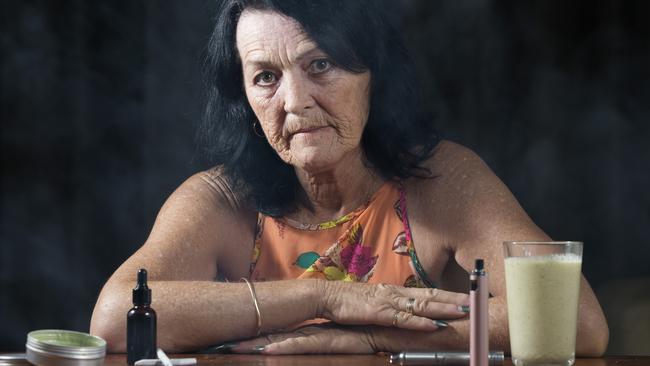
Ms Lynch said so far, the survey had found 80 per cent of medicinal cannabis users were dissatisfied with the way they were accessing the drug and nearly half, (44 per cent) said they were paying more than $500 a month for treatment.
She said many patients got approval for the drug but were then unable to afford to get the script filled.
She said others were getting a bottle and refilling it with black market or homemade oil.


